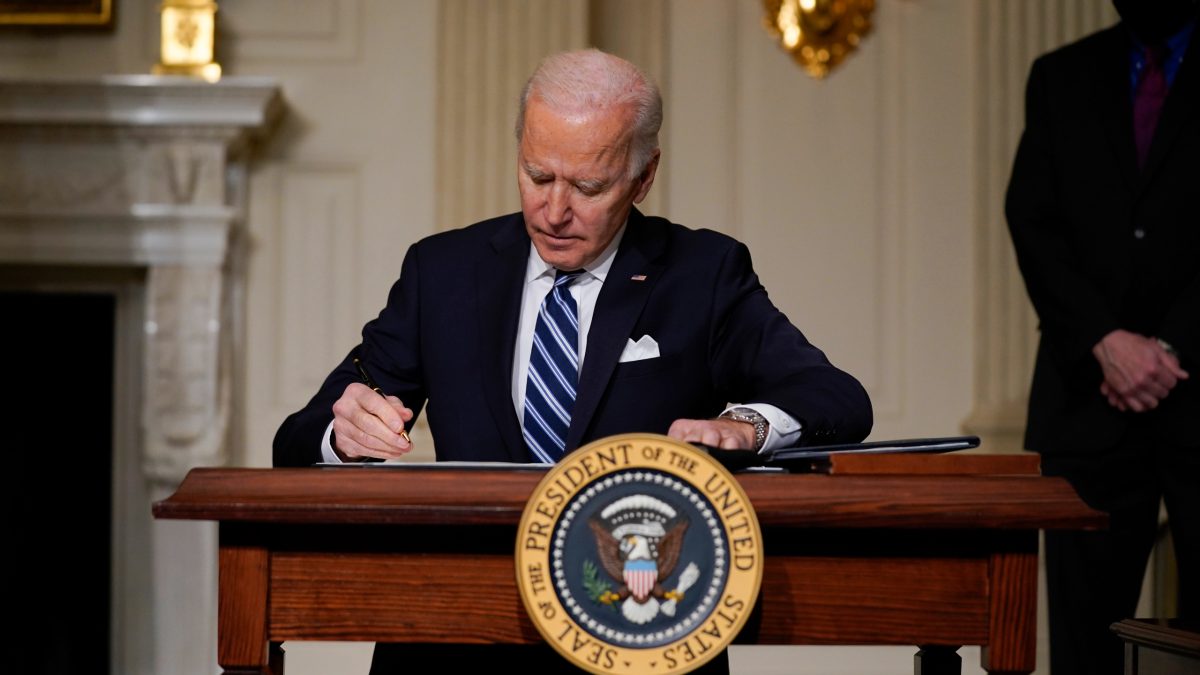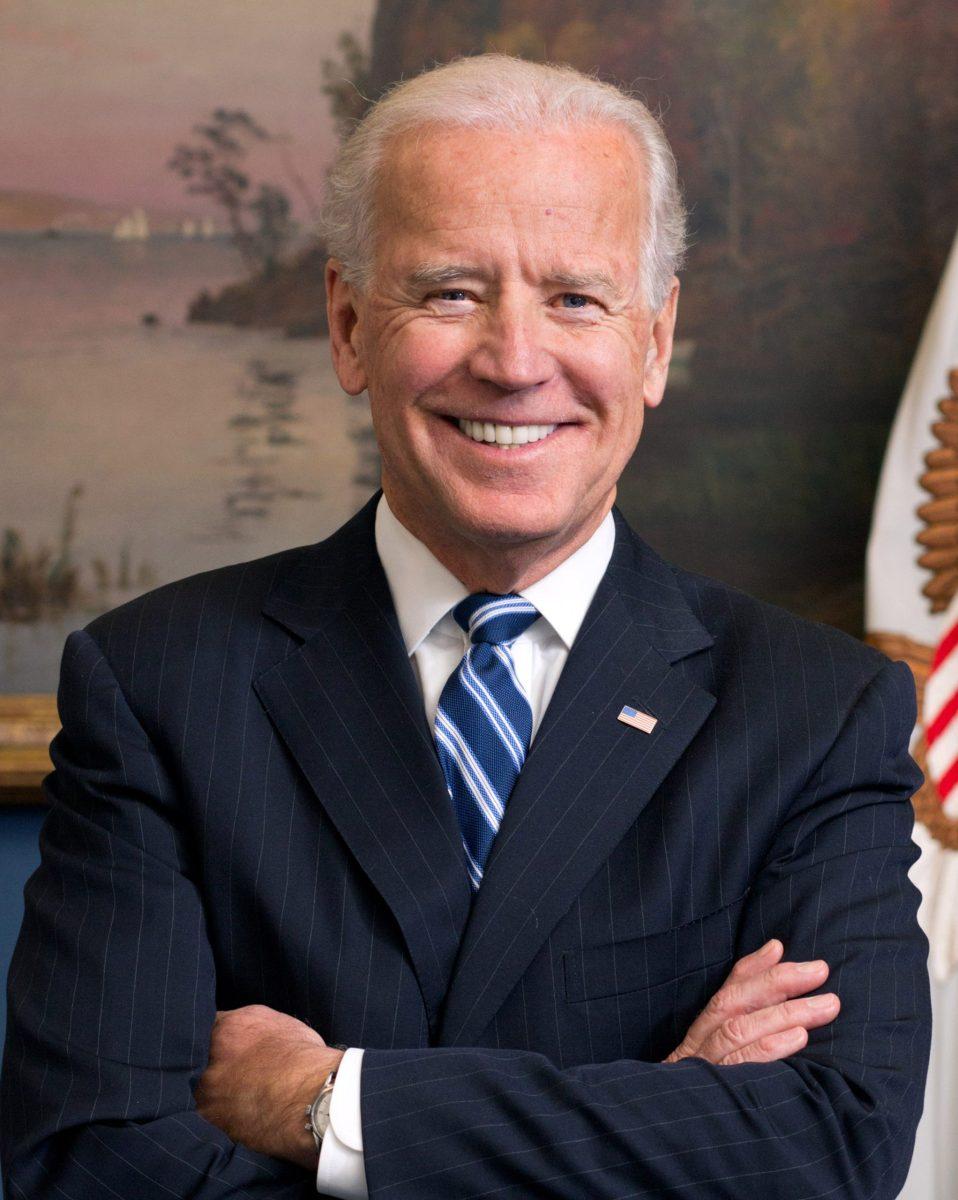[one_third]Liberal – Colin Bayne
Trump has had a rocky track record with trade issues throughout his presidency, killing the Trans-Pacific Partnership and starting various minor trading spats with Canada and European nations. However, his largest and most controversial trade policies relate to his imposition of tariffs on Chinese imports.
This stemmed from Trump’s long-held belief that China has been unfair to the U.S. in trade for years, and cited steel dumping as a main inciter for the tariffs, as well as a general goal of his to reduce trade deficits across the board. While he is not wrong that China has practiced some shady trading policies with the U.S., as well as engaging in cyber-attacks against US interests regularly, many questioned his solution to the issue.
Tariffs are widely believed by many experts to be ineffective in combatting the issue, as, while they do help U.S. producers to become more successful due to lack of foreign competitors, they hurt U.S. consumers due to inevitable price hikes, especially in agricultural and other blue-collar industries which rely on the import of raw materials and parts from China and other nations.
Tariffs are an attempt to gain leverage over an enemy by denying them the U.S. market for their goods. However, this comes at the expense of ordinary Americans, while China maintains plenty of other trade ties across the world. The US economy relies heavily on Chinese imports, and so Trump’s use of a tariff to solve this complex issue is incredibly ham-fisted and unlikely to be successful.
China is guilty of many human rights abuses, from their incursions into Hong Kong’s democratic process as well as their battle for sovereignty to the situation with the Uighur Muslims where many report that the religious and ethnic minority have been placed in concentration and reeducation camps to stamp out their religious and cultural autonomy.
In light of these abuses as well as the unfair practices against U.S. interests in trade and cybersecurity, some action against the nation is warranted. However, instituting tariffs puts the burden on the workers of America, which should never be the goal of the president.
[one_third]Independent – Daniil Ivanov
It has been over one year since President Trump declared a trade war against China. This has been a policy of the two countries issuing back-and-forth tariffs on hundreds of billions of dollars worth of goods in almost every market.
Trump took two stances when issuing the tariffs: China is stealing intellectual property from the United States and China has been the benefactor of too many one-sided trade deals.
While the former is a difficult situation to monitor as the United States cannot dictate what products are manufactured in China, unfavorable trade policies have been a tactic of the United States for decades now to try to break into the Chinese market.
President Nixon went to China in 1972, marking the start of diplomatic relations between the two countries. Every president since then, until Trump, has issued trade policies favorable to China. Overall, the general idea behind giving good trade deals to China had been that intruducing large-scale capitalism into a communist market would destroy communism in China, which it has not, and that having a market of over one billion people would be profitable, which it has been for the most part.
The issue now is that China gets away with many offenses that would not be internationally permitted if it was any other country commiting them. This is simply because there is too much money on the line. However, the trade war impacts China as well since they export far more products to the United States than the U.S. sends to China, and now American manufacturers are seeking other countries to produce goods in.
Between the intellectual property theft and reports from the U.S. Treasury Department that China devalues its currency to make their products even cheaper compared to U.S. manufactured goods, President Trump has the right to retaliate. The only issue is that there was not a strong contingency plan for if this trade war does not end, so businesses in America (notably agricultural) are suffering from a lack of planning by the Trump administration.
At this point, the United States should continue to pursue this trade war in order to stand up to China, but the government should also be finding ways to support our own businesses if this trade war continues.
[one_third]Conservative – Mark Pothen
Last year when President Trump first announced his intention to start placing tariffs on Chinese goods to reduce the trade deficit, many were skeptical about whether or not this was incurring unnecessary risk. The president touted these tariffs as the “greatest” and stated that China was treating the United States unfairly in their trade policies. He concurrently argued that the American people would not face any price hikes on imported goods, which is a blatant lie.
Pursuing the policy to reduce trade deficits is an especially foolhardy pursuit given that trade deficits are not an inherently bad thing to have. For example, Venezuela had a trade surplus in 2017 and is currently one of the poorest countries in South America. The definition of a trade surplus (despite Trump’s utilization of a negative connotation) simply means that the total value of imports is lower than your exports. If an individual goes to the local Walmart and purchases groceries from the store without selling goods to it, there is now a trade deficit between that individual and Walmart. This does not mean that Walmart has taken advantage of the individual, but rather simply that they have engaged in a completely consensual exchange.
This is not to say that there are no cases when tariffs should be utilized. The levying of tariffs can be justified in order to deter a country like China from engaging in inhumane activities or any other behavior that runs contrary to American values.
In the last few months especially, the economic pressure that the president’s tariffs have exerted on China has seemingly become more justified given the abundance of information being reported regarding the Chinese government’s human rights violations and other malicious activities. This includes the tactics utilized by the Chinese government to steal nearly $225-600 billion of American intellectual property annually.
The president needs to make an affirmative case on why the tariffs must be used in order to deter the Chinese government and also acknowledge the fact that Americans will face ramifications in the form of higher prices on goods.































